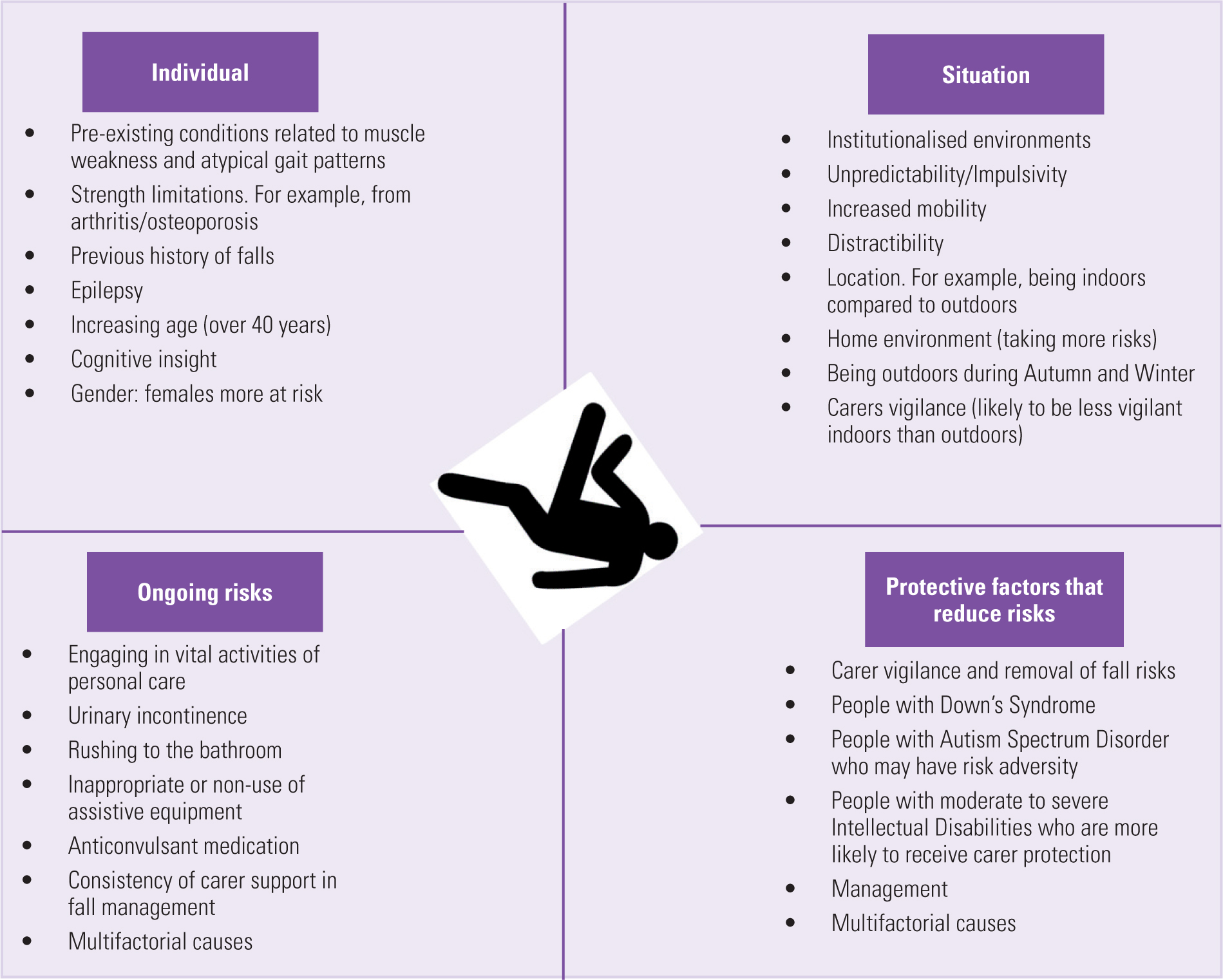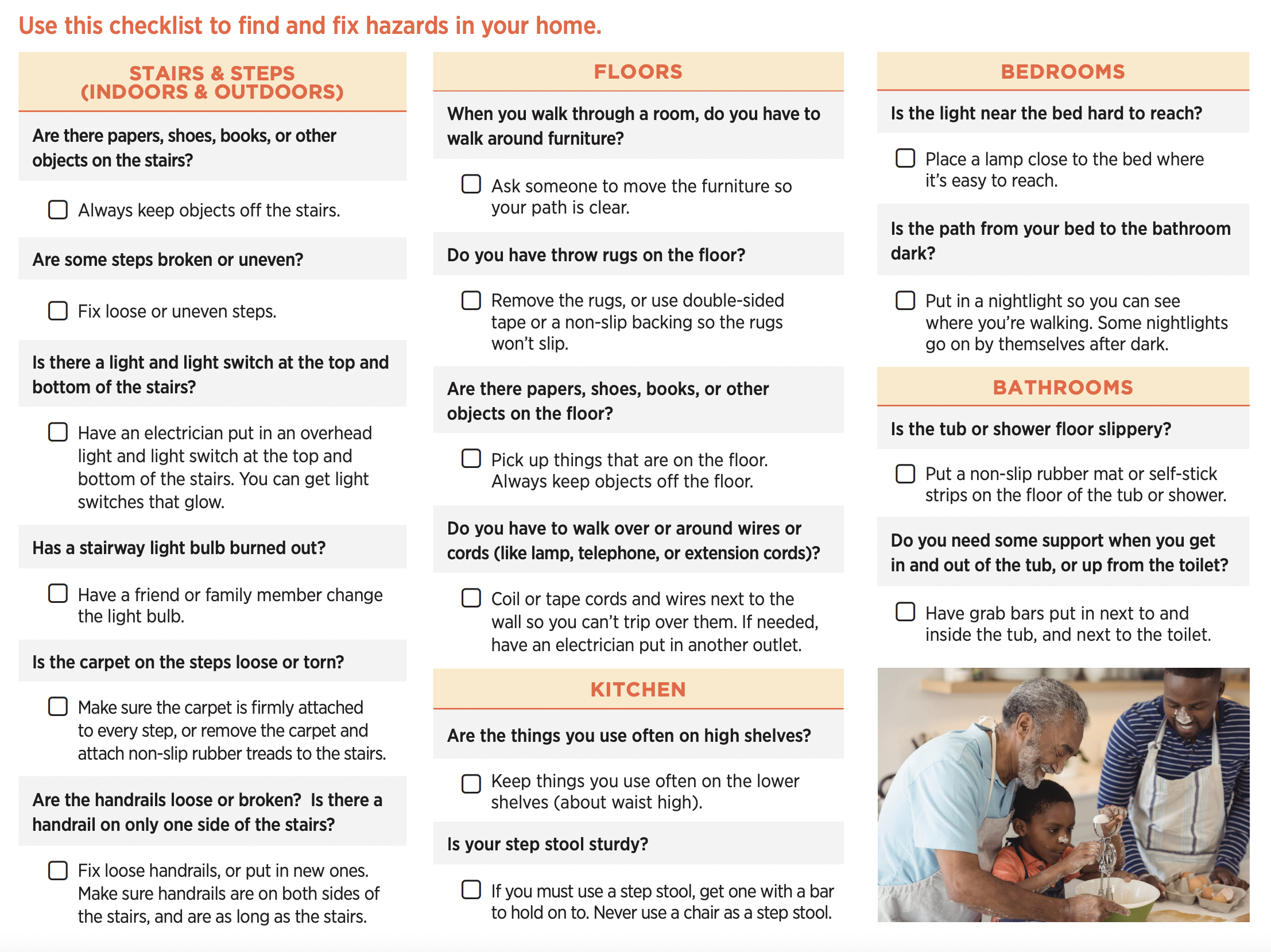Facts About Dementia Fall Risk Revealed
Table of ContentsSee This Report on Dementia Fall RiskDementia Fall Risk Things To Know Before You BuyThe Main Principles Of Dementia Fall Risk The Main Principles Of Dementia Fall Risk All About Dementia Fall Risk
However, based upon signs and signs and symptoms, such as evidence of head injury or a new focal neurologic deficiency, calculated tomography or MRI of the mind may be shown - Dementia Fall Risk. An assessment for root causes of syncope need to be carried out only if there is solid suspicion, as when it comes to persistent, inexplicable falls
Doctor use a loss danger evaluation to recognize your threat elements for dropping and make practical suggestions. Some people try to decrease their fall danger by limiting their task or aiming to be extra mindful. These well-intentioned habits aren't sufficient - Dementia Fall Risk. A loss risk assessment is essential due to the fact that understanding which factors boost your possibilities of dropping helps you: Reduce your threat of falling or hurting yourself.
All grownups 65 years and older should have a first autumn risk screening. Have actually fallen in the previous year. Worry concerning dropping.
Indicators on Dementia Fall Risk You Should Know

, and goals especially tailored to individuals that are at risk for drops. A is defined as an occasion that results in a person coming to relax inadvertently on the ground or flooring or various other reduced degree (WHO, 2021).
Dropping is the second leading cause of death from unintended injuries internationally. It is estimated that autumn fatality prices in the United state
Our Dementia Fall Risk Diaries
If this rate continues, the CDC anticipates seven fall see here deaths every hour by 2030.
Annually, over 800,000 people are hospitalized due to the fact that of drops. Nurses play a significant duty in stopping falls for their individuals with education, evaluating loss threat, producing safer environments, and giving interventions in stopping injuries from falls. Numerous danger elements and conditions add to falls, consisting of the following:. Matured 65 years and older; lower arm or leg prosthesis; use assistive tools such as pedestrian, crane, and wheelchair; living alone.
Patient visit this page will certainly demonstrate selective avoidance procedures. Client and caregivers will execute approaches to increase safety and security and avoid drops in the home. Loss look at here now result from a number of variables, and a holistic approach to the individual and setting is essential. Mean an individual is thought about at high threat for falls after the screening.
The Only Guide for Dementia Fall Risk
A requires utilizing a validated device that researchers have actually examined to be helpful in calling the reasons for drops in a person. As an individual's wellness and circumstances modification, reassessment is required. The level of loss risk can be identified using the assessment of intrinsic and extrinsic factors. Standard analysis devices can likewise be utilized (reviewed listed below).
People are extra likely to drop again if they have maintained one or more drops in the past 6 months. The older populace is at increased threat of fall-related readmissions based on a research study recognizing the factors anticipating of repeat drops connected end results (Prabhakaran et al., 2020).
The ability of people to safeguard themselves from falls is affected by such variables as age and advancement. Older individuals with weak muscular tissues are much more likely to fall than those who preserve muscular tissue strength, flexibility, and endurance.
The 10-Minute Rule for Dementia Fall Risk
Less contrast level of sensitivity was fairly connected with both enhanced rates of drops and various other injuries, while lowered visual acuity was just related to enhanced fall price (Timber et al., 2011). Sensory understanding of ecological stimulations is critical to safety. Vision and listening to problems limitation the patient's capacity to view hazards in the surroundings.
Older grownups who have inadequate balance or trouble walking are more most likely to drop., or other clinical problems and therapies., and use of psychotropic medications (Stanmore et al., 2013).